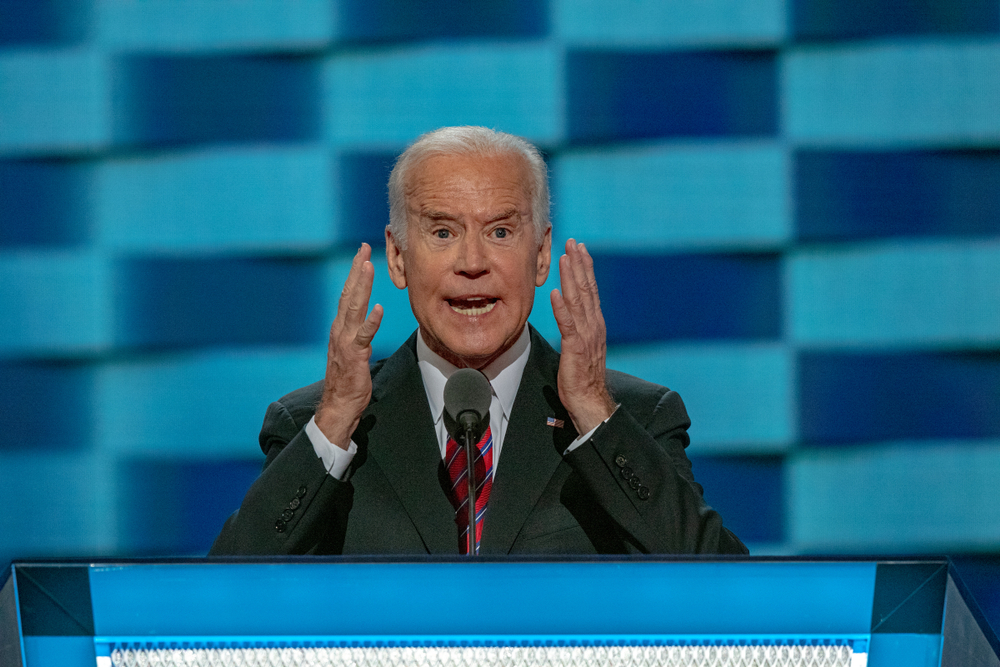Politics
Whitehouse Calls ‘Minority’ Trump Supporters Extremists

Before President Joe Biden’s prime-time presentation on challenges to democracy in advance of the midterm elections, the White House defended his interpretation of extremism.
It is widely assumed that Biden will make the nonsensical claim that the faction of the Republican Party most closely identified with former President Donald Trump poses a threat to democracy. However, he is already being questioned about whether or not he considers “ultra-MAGA” Republicans to be fundamentally distinct from the rest of the Republican Party.
The intention behind this speech will be threefold:
1: paint Republicans as enemies of the state
2: signal to violent street communists that violence is ok
3: try to provoke a violent response from the right to justify crackdowns https://t.co/J4wWPd9n8D— Jesse Kelly (@JesseKellyDC) September 1, 2022
“When you are not with where a majority of Americans are, then you know, that is extreme,” White House press secretary Karine Jean-Pierre told journalists at Thursday’s briefing. “That is an extreme way of thinking.”
Many of the views that 2022 voters hold strongly today were once opposed by majorities. In 1996, Gallup found that 68% of respondents were against gay marriage, while only 27% were in favor.
The Defense of Marriage Act was approved by an overwhelming majority in both houses of Congress that year. When he was a senator representing Delaware, Biden supported a ban on gay marriage at the federal level. Democrat President Bill Clinton signed it into law. When popular opinion on same-sex marriage began to shift in 2012, President Biden shifted his stance on the topic.
Jean-Pierre characterized the conservative element of the Republican Party as advocates for a countrywide ban on abortion. “They want to give tax cuts to billionaires and corporations while raising taxes on middle-class Americans. They are threatening political violence, and they are attacking our democracy.”
It’s true that some of these views, including the most extreme forms of anti-abortion legislation that the Supreme Court has deemed legal since its decision in Dobbs v. Jackson Women’s Health Organization overturning Roe v. Wade, fail to draw majority support in public polling.
However, in 2009, Gallup found pluralities of people identified as “pro-life,” and this trend has continued through 2019. The “pro-choice” viewpoint only enjoyed a 49% to 47% edge in May 2021, yet this increased to 55% to 39% the following year as the draft Dobbs opinion leaked to the news.
Nonetheless, 50% of respondents to the Gallup poll at the time felt abortion should be authorized only under limited circumstances. Only 35% were in favor of making abortion legal in all situations, as would be the situation under a federal abortion rights bill supported by the White House. One in eight also thinks abortion should be outlawed regardless of the situation.
Since 1994, when Gallup first asked about the issue, a plurality has held that abortion should be lawful only in limited circumstances; in 2019, this number peaked at 61%.
Over the years, the majority of Americans have either supported making abortion legal under all conditions or making it legal under only a few circumstances, with the former never receiving more than 35% of the vote in Gallup polls conducted since 1994.
When asked about Biden’s performance as president, the vast majority of respondents have been unsatisfied for well over a year. The most recent average of polls on RealClearPolitics shows that 54.8% of Americans do not approve of President Joe Biden, while only 42% give him their approval.
The Rasmussen survey has been the most reliable one for Biden recently. Despite this, he is still 10 points in the negative, with 54% of people not liking him compared to 44% who do. In a similar Reuters poll from around the same period, 38% of respondents approved of Biden while 58% disapproved.
In many polls conducted in June and July, disapproval of Biden exceeded 60%. The current RealClearPolitics average shows 23.2% picking “correct direction” to 69.9% picking “wrong track,” with 61%-81% of respondents saying the country is headed in the wrong direction under Biden.
The president has claimed that he has a great deal of regard for “traditional” conservative Republicans, but the White House has named very few of them beyond term-limited Maryland Governor Larry Hogan.

